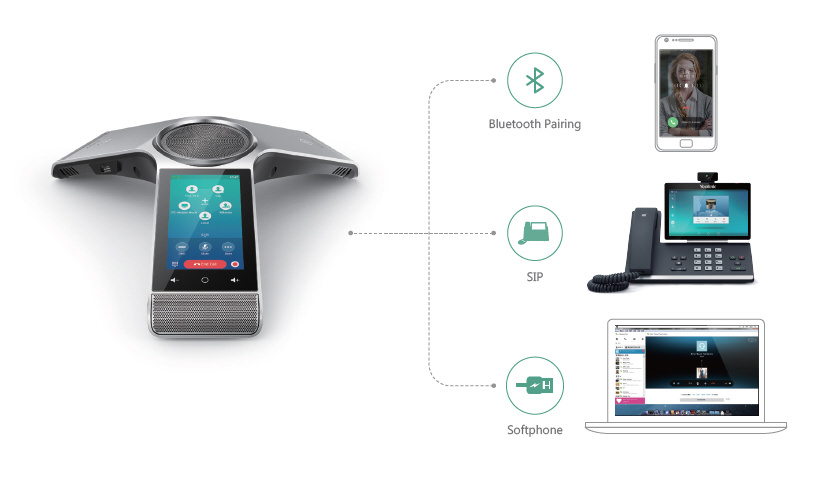The Do’s and Don’ts of Choosing a VoIP Phone System
Introduction
In today’s fast-paced business environment, effective communication is paramount. With the advent of technology, traditional phone systems are becoming obsolete, making way for modern solutions like Voice over Internet Protocol (VoIP) phone systems. If you’re considering a transition to a VoIP phone system, you’re likely wondering about the best practices and pitfalls to avoid during this journey. This article will guide you through The Do’s and Don’ts of Choosing a VoIP Phone System, ensuring you make an informed decision that suits your business needs.
The Do’s and Don’ts of Choosing a VoIP Phone System
Do Understand Your Needs
Before diving into the vast ocean of VoIP phone systems, it’s crucial to assess your specific requirements.
Evaluate Current Communication Challenges: Are you facing issues with call quality or high costs? Pinpointing these challenges will help tailor your search. Consider Scalability: As your business grows, so should your communication tools. Look for systems that can easily scale with your needs. Identify Features That Matter: Features like call forwarding, voicemail-to-email, video conferencing capabilities, and mobile compatibility can greatly enhance productivity.
Don’t Rush the Selection Process
Choosing a VoIP system is not something to take lightly. Rushing can lead to poor decisions.
Take Your Time: Investigate various options thoroughly before committing. Request Demos: Most providers offer demos or free trials. Utilize these opportunities to test functionalities firsthand.
Do Research Providers Thoroughly
Not all VoIP providers are created equal.
Read Reviews: User reviews can provide valuable insights into the reliability and performance of different services. Check Credentials: Look into awards, recognitions, or industry certifications that could reflect a provider's credibility.
Don’t Overlook Customer Support
Effective customer support is essential for any tech service.
Availability Matters: Ensure that support staff are available 24/7 to address potential issues. Multiple Channels for Support: Look for providers offering live chat, email, and phone support.
Do Compare Pricing Models
Understanding pricing is key in choosing a suitable VoIP phone system.
Look for Hidden Fees: Some providers may advertise low base rates but charge extra for essential features. Assess Total Cost of Ownership (TCO): Consider installation fees, maintenance costs, and subscription fees over time.
Don’t Ignore Security Features
Security should never be an afterthought when it comes to VoIP systems.
Encryption Matters: Ensure the provider uses encryption protocols to protect your calls from eavesdropping. Regular Updates: Choose a provider that frequently updates their software to fend off vulnerabilities.
Do Plan for Implementation
Implementing a new system requires thoughtful planning.
Create an Implementation Timeline: A well-thought-out timeline helps manage expectations and keeps everyone on track. Train Employees Effectively: Adequate training will ensure smooth adoption of the new system across your organization.
Don’t Forget About Internet Bandwidth
Your internet connection plays a vital role in voice quality.
Assess Your Current Bandwidth Usage: High bandwidth usage may necessitate an upgrade before implementing a VoIP phone system.
Do Take Advantage of Unified Communications
Unified communications integrate various channels into one platform.
Enhanced Collaboration Tools: Look for providers offering features like instant messaging and video conferencing along with standard calling features.
Don’t Underestimate Mobile Compatibility
With remote work on the rise, mobile compatibility is indispensable.
Access Anywhere: Ensure your chosen VoIP phone system works seamlessly on smartphones and tablets so employees can communicate effectively from anywhere.
FAQ Section
What is a VoIP Phone System?
A VoIP phone system allows users to make voice calls via the internet instead of traditional telephone lines. It converts voice signals into digital data packets transmitted over the internet.
How does VoIP differ from traditional telephony?
Unlike traditional telephony that relies on circuit-switched networks, VoIP utilizes packet-switched networks, allowing more flexibility in usage and integration with other digital services.
Can I keep my existing phone number with a new VoIP service?
Yes! Many VoIP providers offer number porting services which allow you to retain http://beckettdyod925.fotosdefrases.com/how-to-migrate-from-traditional-phones-to-a-voip-phone-system-smoothly your existing number while transitioning to their service.

What equipment do I need for a VoIP Phone System?
Generally, you'll need an internet connection (broadband recommended), IP phones (or compatible devices), and potentially additional hardware such as routers or adapters depending on the provider's requirements.
Is it possible to use my computer as a VoIP device?
Absolutely! Most VoIP providers offer software applications that enable you to make calls directly from your computer using either headphones or external microphones.
What happens if my internet goes down?
In such cases, most providers have backup solutions in place; however, it's wise to discuss redundancy options during selection. Some businesses opt for secondary connections or rely on cellular networks as backups.
Conclusion
Navigating through the myriad options available when selecting a VoIP phone system may seem daunting at first glance. However, by adhering to the do's and don'ts outlined in this article regarding The Do’s and Don’ts of Choosing a VoIP Phone System, you'll be well-equipped to make an informed decision tailored specifically for your business needs. Remember that investing time upfront in thorough research can save both money and headaches down the line! Happy calling!